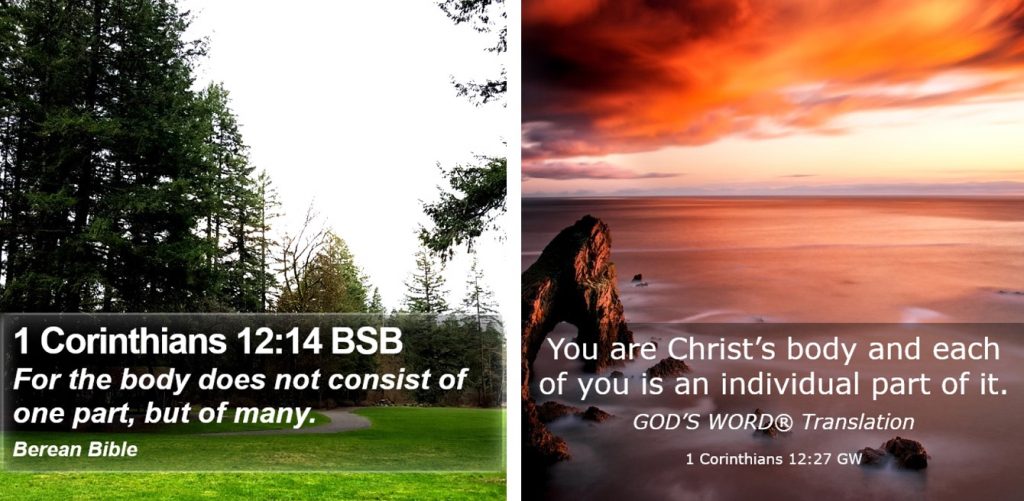“Go therefore and make disciples of all the nations…teaching them to observe all that I commanded you; and lo, I am with you always, even to the end of the age” (Matthew 28:19-20, NASB).
——————–
Contents:
1) Remember Thy Creator (Bruce Reeves)
2) In Active Service “…so that he may please the one who enlisted him as a soldier” (Jon W. Quinn)
——————–

-1-
Remember Thy Creator
Bruce Reeves
Many people seem to have the idea that Christianity is reserved only for those who are older. For some reason, folks have it in their mind that young people are not supposed to be interested in spiritual things. But actually nothing could be further from the truth.
Why should young people not desire to be Christians? We have the same Creator and are to love the same God as everyone else. We are to serve and believe in the same Lord and are to confess faith in the same Christ as those older than us. When young people obey the gospel we are added to the same church, we are to obey the same Bible, we are trying to reach the same heaven and avoid the same hell by overcoming the common problem of humanity, namely sin. So really now, what is the difference?
The question, “Why should a young person be a Christian?” is the wrong question in that it assumes one should not be a child of God. The proper question is: “Why should a young person not be a Christian?”
Solomon said a long time ago, “Remember now your Creator in the days of your youth, …” (Ecclesiastes 12:1).
But what does Solomon mean by the word “remember”? He means more than to just acknowledge the existence of God. The Scripture says God remembered Hannah. How did He do this? Did He just recall that she was alive? Certainly not. God remembered Hannah by taking action to help her, and we remember God by participating in active obedience to His Divine will.
How do we remember God? By thinking of His Divine person, reflecting on His goodness, meditating on His Word, and obeying His blessed commands.
— Via Roanridge Reader, March 13, 2022
——————–

-2-
In Active Service
“…so that he may please the one who enlisted him as a soldier”
Jon W. Quinn
The Lord describes our service in many different ways. He employs various figures of speech to illustrate various aspects of discipleship. Disciples are described as runners in a race, as sheep following a shepherd, as friends, as servants, as brethren, as living stones, as sons and daughters, as citizens of a kingdom, as new creatures… the list could go on.
One figure also used is that of a soldier. While the Bible makes it quite clear that our warfare and weaponry is spiritual, and not physical, there are still many parallels between being a successful soldier in God’s kingdom and a successful soldier in the physical realm. Paul mentions one: a soldier needs to be free from distractions as he exercises his duty (2 Timothy 2:4). Paul gives emphasis to the idea of “active service.” That is, after all, what is involved in successful discipleship: activity.
In our own nation, the government has made provisions for its soldiers so they can train and serve with a minimum of interference of everyday concerns. Families are often provided with living quarters and access to medical care, education, inexpensive staples, etc. Reservists’ employers are asked to excuse reservists from their jobs when called up to active duty. This is so “the affairs of everyday life” will not deter the soldier from focusing on his mission. It is a detriment when military families suffer need because then the soldier’s attention and concern becomes divided. He thinks about their needs not being met instead of his work.
The victory that comes to the successful soldier who has fought the good fight of faith is eternal life (1 Timothy 6:12). In the army, a soldier who does not put forth his fair share is referred to as a “goldbricker.” The Lord has called us into “active service” and we need to be active. We need to be true and carry out our duty.
Consider some of the aspects of being a soldier of Christ:
The Weapons of the Soldier of Christ
Because the warfare is spiritual, and not physical, do not make the mistake of thinking it is not important, or fierce, or costly, or real. Do not underestimate the potential for injury or death in a spiritual war. Casualties in this war brings spiritual and eternal death!
That is not a pretend death, but real and permanent. Understand, when a faithful Christian dies physically, the Lord will raise Him up unto life eternal; death is only a passing on to victory ( John 11:24-27). But eternal death is the consequence of losing the spiritual war (Romans 6:23; Galatians 6:7,8; Revelation 20:14; 21:8).
Through the media, we have seen some pretty horrific consequences of physical war. But as bad as they are, may none of us ever face the far worse consequences of suffering eternal death because we lost the spiritual conflict!
It’s a matter of tactics. You do not want to rush archers on a wall with swordsmen without some means of scaling the wall. In modern warfare, combined arms is important. Against aircraft you need anti-aircraft guns. Against tanks you need antitank guns. It is important to know your enemy.
So, let’s consider the enemy. The first thing to know is that he is not interested in peace, but in your destruction (1 Peter 5:8). No peace! No compromise! No quarter asked nor given; To surrender is to be defeated. That is important to know.
It is also important to know the battlefield. Jungle warfare is fought differently than mountain, or city warfare. Ski troops with white camouflaged uniforms would not fare well in desert combat.
So, let’s consider the battlefield (2 Corinthians 10:3-5). Having considered the spiritual nature of the place of conflict, we can begin to see what weapons we need. The fortresses we seek to destroy are the sins and speculations of the world which exalt themselves against God and His righteousness; and the battle begins in our own hearts. It is there that Satan seeks to gain ground, and that is where we must stop him! “For as he thinks within himself, so he is” (Proverbs 23:7; Mark 7:20-23).
Those who have obeyed the gospel unto the remission of their sins have enlisted. Like any conflict, some go A.W.O.L. (absent without leave). But for those determined to be successful soldiers, how do we arm ourselves against Satan on this battlefield? Paul describes our panoply (a complete set of arms and armor-see Ephesians 6:10-17). The doubtful, the neglectful and the lethargic have no defense against the flaming darts of the evil one!
The Warfare of the Soldier of Christ
The “Battle Hymn of the Republic” declared “His truth is marching on.” I hope that is more than just a line out of a patriotic song for you, for it states a divine purpose God gives to His soldiers. It is amazing that people will sing the song with little or no idea what His truth is! We fight to advance God’s truth in an often hostile world; but remember, our weapons are not carnal.
The truth is the gospel of Jesus Christ, and it is a truth not only to be believed but to be practiced even when conflict between the truth and the world rages (John 1:14; 3:19-21; 8:31,32; 8:43-47). We will not abandon our cause, nor our post. We will support our fellow soldiers as a band of brothers.
We are not mercenaries. We do not serve the highest bidder for our services. We serve out of loyalty, love, honor and devotion to our King. We do not serve only in times of ease, but turn tail and run when the sacrifice might be too great. We fight for the king, and we are in it for the duration. I hope that all of us would be able to affirm that this is so. Our warfare will be over when the Commander says so (1 Corinthians 15:54-58).
Final Thoughts on Warfare and Good Soldiering
With confidence in God, when the battle is engaged and the world issues a challenge, such as Goliath did, “I defy the ranks of Israel this day; give me a man that we may fight together” (1 Samuel 17:10), we will respond with the assurance of faith, as David did, “The LORD who delivered me from the paw of the lion and from the paw of the bear, He will deliver me from the hand of this Philistine” (1 Samuel 17:37). The goal of this warfare is not to inflict harm on fellowmen, but by fighting the fight to win some for Christ. It is to purify our hearts, and influence others to do the same. That is why we must be prepared for the defense and confirmation of the gospel.
So many today fail to understand that without this warfare, there is not real discipleship. Often, we are expected to be docile, non-challenging, laid back and to only discuss these matters in the most compromising and tepid ways. While the Christian’s speech should always be “seasoned as it were, with salt” and we should be careful as to “how we answer each one” and seek to be at “peace with all men so far as it depends on you”… at the same time we must faithfully discharge ourselves as soldiers on a battlefield enrolled in active service. Our enemy seeks to destroy, his time is shortened, our victory over him will be everlasting. But for there to be victory, first the battles must be fought and won.
— Via The Bradley Banner, 2/24/2008, published by the Bradley Church of Christ
——————–
The Steps That Lead to Eternal Salvation
1) Hear the gospel — for that is how faith comes (Rom. 10:17; John 20:30-31).
2) Believe in the deity of Jesus Christ, the Son of God (John 8:24; John 3:18).
3) Repent of sins. For every accountable person has sinned (Romans 3:23; Romans 3:10), which causes one to be spiritually dead (Ephesians 2:1) and separated from God (Isaiah 59:1-2; Romans 6:23). Therefore, repentance of sin is necessary (Luke 13:5; Acts 17:30). For whether the sin seems great or small, there will still be the same penalty for either (Matt. 12:36-37; 2 Cor. 5:10) — and even for a lie (Rev. 21:8).
4) Confess faith in Christ (Rom. 10:9-10; Acts 8:36-38).
5) Be baptized in water for the remission of sins (Mark 16:16; Acts 2:38; 22:16; 1 Pet. 3:21). This is the final step that puts one into Christ (Gal. 3:26-27). For from that baptism, one is then raised as a new creature (2 Cor. 5:17), having all sins forgiven and beginning a new life as a Christian (Rom. 6:3-4). For the one being baptized does so “through faith in the working of God” (Col. 2:12). In other words, believing that God will keep His word and forgive after one submits to these necessary steps. And now as a Christian, we then need to…
6) Continue in the faith by living for the Lord; for, if not, salvation can be lost (Matt. 24:13; Heb. 10:36-39; Rev. 2:10; 2 Pet. 2:20-22).
——————–
Tebeau Street
CHURCH OF CHRIST
1402 Tebeau Street, Waycross, GA 31501
Sunday: 9 a.m. Bible Classes and 10 a.m. Worship Service
Wednesday (all but the first): 7 p.m. Bible Classes
First Wednesday of the month: 7 p.m. Congregational Song Service (about 45 minutes of singing, followed by a short talk)
evangelist/editor: Tom Edwards (912) 281-9917
Tom@ThomasTEdwards.com
https://thomastedwards.com/go/all.htm (This is a link to the older version of the Gospel Observer website, but with bulletins going back to March 4, 1990.)


















